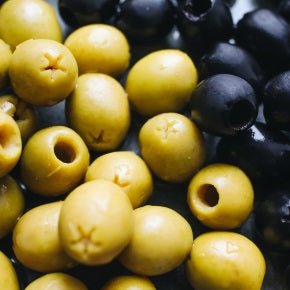Following many years of debate, the UK is to start supplementing flour with folic acid in order to support healthy pregnancies across the country. Read more on this update and other recent updates in the world of nutrition here.
Flour to be supplemented with folic acid following years of debate
Following many years of debate, the UK government has passed a ruling that will see flour be supplemented with folic acid. The mandatory fortification is the result of a public consultation in 2019, which took place following 25 years of campaigning from the charity Shine. It is estimated that supplementing flour with the important B vitamin could prevent as many as 200 birth defects a year.
Folic acid is the synthetic form of vitamin B9, otherwise known as folate. While pregnant women are advised to supplement with folate, and on occasion other fertility supplements, in the month before conception and for at least 12 weeks afterwards, around half of all pregnancies are unplanned, so many do not consume adequate amounts during this time. Deficiency in vitamin B9 during pregnancy can cause neural tube defects, such as spina bifida, which is an abnormal development of the spine, and anencephaly, which affects the brain. It is thought that these conditions affect 1,000 pregnancies a year in the UK, with 40% of cases proving to be fatal.
Scientists have argued, as reported by the BBC, that the supplementation, which would see the vitamin added to everyday items such as bread, is a safe and effective way of preventing complications during pregnancy with 80 countries worldwide having implemented the legislation already. Australia is one of the most recent countries to introduce folic acid supplementation of bread and has seen neural tube defects drop by 14% as a result.
The cognitive benefits of prebiotics
Probiotics get a lot of press attention but a more recent study has shed light on the potential of prebiotics in cognitive support and brain health.
The study by researchers in Bengaluru, India and North Dakota, US, reported by NutraIngredients USA, suggests that prebiotic non-digestible oligosaccharides (NDOs) might have a role in supporting cognitive function through metabolites circulating in the blood and neural feedback mechanisms.
The researchers noted the importance of this study as, previously, most studies have focussed on the mechanisms within the gut itself and only recently have started to delve into the gut-brain axis. Speaking of the research, the study authors admit that the results are limited by the length of time the subjects were studied, at four - 12 weeks, and the diversity of the subjects who were all healthy, young or middle-aged adults. However, the preliminary evidence at clinical levels supports the case for prebiotic NDOs for improved brain function and behaviour, although further research is needed to cement these findings.
Survey highlights the need for focus on Covid-recovery nutrition
A survey by IPSOS, a global market research and public opinion specialist and as reported by Food Navigator, has highlighted the need for a greater focus on nutrition in Covid recovery.
The survey took on comments from 453 patients suffering with Covid-19 in hospitals across Spain, the UK, Italy, France, and Germany. It found that more was needed to be done to better integrate nutrition into care, both in hospital and following discharge.
The majority of those surveyed reported that weight and muscle loss during recovery were what concerned patients most, with significant cases showing that reduced energy intake was associated with worse health outcomes of Covid-19. Given that Covid-19 is linked with ongoing difficulties completing daily tasks is cause for concern where weakness from poor nutrition can only compound the effects as is evident in the fact that the survey raised that 85% of respondents reported difficulty climbing stairs.
It is hoped that the research will inform clinical guidance for the nutritional management of patients recovering from severe Covid-19.
Share your thoughts
Agree with the findings in this week’s Nutrition News? Share your thoughts with us on Facebook and Twitter.
 Alison is the Founder of Metabolics who writes about Metabolics updates, events and natural healthcare. Her experience and passion for natural supplements and healthcare comes from her years of experience as a practising osteopath, having founded Metabolics in her search for high quality, natural products in her own work. Alison has been a qualified and practising Osteopath since 1981 and regularly gives seminars on a range of healthcare subjects to the wider practitioner community helping share her knowledge and experience.
Alison is the Founder of Metabolics who writes about Metabolics updates, events and natural healthcare. Her experience and passion for natural supplements and healthcare comes from her years of experience as a practising osteopath, having founded Metabolics in her search for high quality, natural products in her own work. Alison has been a qualified and practising Osteopath since 1981 and regularly gives seminars on a range of healthcare subjects to the wider practitioner community helping share her knowledge and experience.




